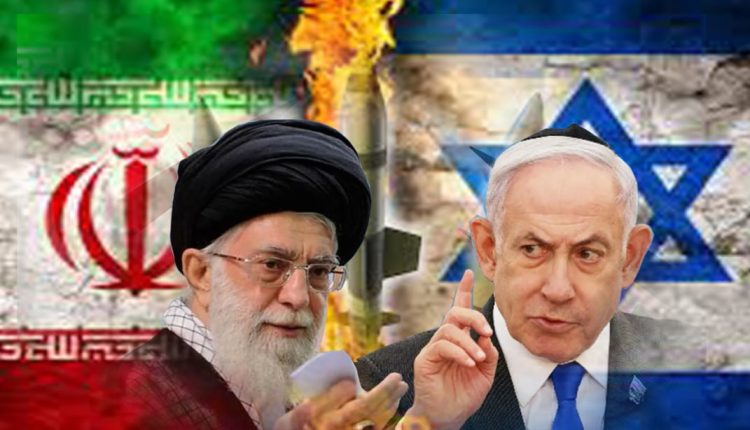SANAA, July 13 (YPA) – Between Iranian Supreme Leader Ali Khamenei’s threats to repeat the strike on the US Al-Udeid airbase in Qatar and Israeli Prime Minister Benjamin Netanyahu’s warnings of a new strike against Iran, the possibility of war between the two sides has returned to the forefront amid growing regional tensions and the absence of clear prospects for de-escalation or diplomatic solutions.
Khamenei: The strike on Al-Udeid is not a minor incident
In his first public appearance since the outbreak of the latest confrontation with “Israel” on June 13, Khamenei asserted that the targeting of the US Al-Udeid airbase in Qatar on June 23 was a “strong slap” to the United States and an indication of Iran’s ability to reach sensitive US sites in the region at will.
Khamenei said via the X platform, “The strike we carried out is not a passing incident, but rather a strategic step that can be repeated if necessary.”
Khamenei’s statement was accompanied by a video clip published by Iranian media outlets, which included footage of the attack on the base and showed damage to what is believed to be a “sensitive communications dome,” as confirmed by satellite images published by the Associated Press.
Netanyahu: “Israel” may attack Iran again without US permission
Meanwhile, “The Wall Street Journal” newspaper reported that Israeli Prime Minister Benjamin Netanyahu informed US President Donald Trump, during a private meeting in Washington, that “Israel” is prepared to carry out a “second strike” against Iran if it resumes its nuclear program.
Although Trump declared his support for the negotiating process, he did not express a decisive objection to the Israeli plan, indicating the possibility of giving him an indirect green light if diplomatic efforts falter, according to media reports.
The Nuclear File: Between Obstruction and Escalation
Negotiations to revive the nuclear agreement between Washington and Tehran have stalled after a meeting scheduled for Oslo between US envoy Steve Witkoff and Iranian Foreign Minister Abbas Araqchi was postponed. This comes amid ongoing disagreement over the condition of halting uranium enrichment inside Iran, a requirement Tehran categorically rejects.
Iranian President Masoud Peseshkian had confirmed his country’s readiness to return to the negotiating table, provided guarantees are provided that no new attacks will be launched during the negotiation period. However, he stressed that “Iran will continue to defend its sovereign right to enrich uranium.”
Three Possible Scenarios:
According to sources and observers, the region faces three main scenarios:
1. Limited and Controlled Escalation:
This would involve mutual qualitative operations (military or cyber) as part of a policy of deterrence without descending into all-out war.
2. Direct and Open Confrontation:
This is a less likely possibility due to its high cost for both sides, but it remains a possibility if negotiations fail.
3. Conditional Return to Nuclear Negotiations:
This is a precarious prospect, reliant on Washington’s readiness to offer security assurances to Tehran and alleviate its requirements concerning the nuclear program.
Washington Between Two Fires
The US administration finds itself in a difficult position. It seeks to avoid a new direct confrontation and a recurrence of mutual attacks, but at the same time, it is required to protect its interests and bases and maintain its strategic alliance with “Israel.”
In light of Tehran’s renewed threats to strike US bases if it is subjected to a new attack, any future escalation could drag Washington into an unpredictable confrontation, whether it wants to or not.
Ultimately, the statements of Khamenei and Netanyahu represent a “public exchange of warlike messages,” indicating that the Iranian-Israeli conflict has entered a new phase, one that is more open and less susceptible to containment. While each side maintains its position, the Gulf and the Middle East in general remain on a “hot plate” of tension that could explode at any moment unless the diplomatic stalemate is broken soon.
YPA


